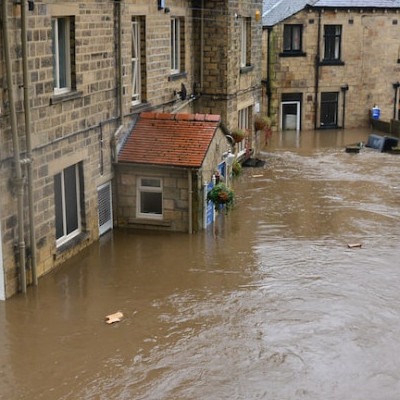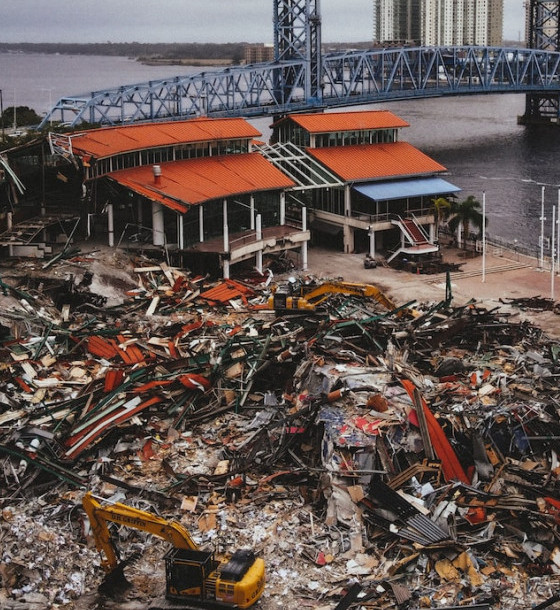 Equipping Yourself for Natural Disasters and Beyond
Equipping Yourself for Natural Disasters and Beyond
Natural disasters can strike at any moment, leaving communities devastated and individuals grappling with the daunting challenge of survival. In such critical times, having the knowledge and skills to navigate through adverse condition becomes Paramount. This is where survival training and survival camps play a crucial role in this article, we will explore the significance of survival training for surviving during and after natural disasters, and how participating in survival camps can prepare individuals to face the unpredictable challenges of Mother Nature head-on.
Understanding the Need for Survival Training
Natural disasters, including hurricanes, earthquakes, floods, wildfires, and tornadoes, can unleash havoc on the environment and disrupt the normal course of life, They often lead to power outages, limited access to food and clean water, and compromised communication networks. In such scenarios, it is essential to possess the skills and mindset required to survive until help arrives or normalcy is restored.
Survival training equips individuals with the knowledge of fundamental survival techniques and strategies that can make a significant difference in life-threatening situations. It focuses on teaching essential skills like shelter building, water procurement, fire starting, navigation, first aid, and emergency signaling. By acquiring these skills, individuals can enhance their chances of survival, mitigate risks, and aid others in need.
The Role of Survival Camps
Survival camps provide a structured and immersive learning environment, allowing participants to develop practical survival skills and gain valuable experience. These camps are often conducted in remote wilderness areas, simulating real-life survival scenarios. Let’s delve into the key benefits of attending survival camps:
1. Skill Development: Survival camps offer hands-on training that allows participants to learn and practice survival skills under expert guidance. From constructing makeshift shelters to purifying water sources, participants gain practical experience in a controlled setting. This experiential learning approach helps build confidence and resilience, ensuring individuals are better prepared to face challenging situations.
2. Teamwork and Collaboration: Natural disasters require individuals to work together, pooling their resource and strengths. Survival camps emphasize teamwork and collaboration, encouraging participants to communicate effectively, delegate tasks, and support one another, These skills are invaluable during times of crisis when collective efforts can make survival more likely.
3. Decision-making under Pressure: Surviving in a disaster requires quick thinking and sound decision-making, even under extreme pressure. Survival camps simulate high-stress situations and teach participant how to prioritize tasks, assess risks, and make informed choices when every second counts. This training enhances mental agility and adaptability, essential qualities for surviving and thriving in challenging environments.
4. Emotional Resilience: Natural disasters can be emotionally overwhelming, causing fear, panic, and anxiety. Survival camps expose participants to controlled stresses, helping them develop emotional resilience and learn to manage their fears, By facing\g difficult situations in a supportive environment, individuals can cultivate the mental fortitude needed to face real-life disasters with a level-headed approach.
5. Knowledge Sharing: Survival camps bring to gather participants from diverse backgrounds, fostering an environment of shared learning. Attendees can exchange experiences, strategies, and tips, expanding their knowledge base and gaining insights from others who have faced different challenges, This collaborative learning environment enhances the overall effectiveness of survival training.
Survival Training
Survival training is not only limited to the immediate survival during a disaster but also extends to the post-disaster phase, After a natural disaster, communities often face a range challenges, such as limited access to resources, damaged infrastructure, and the need for self-sufficiency until aid and support arrive. Survival training equips individuals with the skills and mindset necessary to adapt to these challenging conditions and aid in the recovery process.
In the aftermath of a natural disaster, the ability to procure food, water, and shelter becomes paramount. Survival training teaches individuals how to identify edible plants, hunt or fish for food, and purify water from potentially contaminated sources. These skills can make a significant difference in ensuring individuals have access to basic necessities when conventional resource are scarce.
Furthermore, survival training emphasizes the importance of self-sufficiency and resourcefulness. Participants learn how to re purpose materials, create tools and implements from natural resources, and improvise solutions to address their needs. These skills not only enable individuals to survive but also contribute to the overall resilience of the community as they actively participate in the rebuilding process.
Survival training also includes first aid and medical skills, which are crucial in disaster situations when medical facilities may be overwhelmed or inaccessible. Participants learn how to provide basic medical care, administer CPR, treat wounds, and manage common injuries or illnesses that may arise during a disaster. These skills can save lives and alleviate suffering until professional medical assistance becomes available.
Additionally, survival training incorporates navigation and communication techniques. In the aftermath of a natural disaster, familiar landmarks may be destroyed, and traditional communication channels may be disrupted. Knowing how to use a compass, read maps, and utilize alternative communication methods such as signaling can help individuals navigate through unfamiliar terrain and connect with rescue teams or other survivors.
It is important to note that survival training is not limited to individuals who live in disaster-prone areas. Natural disasters can occur anywhere, and being prepared is essential for everyone. Survival camps provide an immersive and comprehensive learning experience, but individuals can also engage in self-study, attend workshops, or participate in community-based training programs to acquire essential survival skills.
Conclusion
In conclusion, survival training and survival camps play a vital role in preparing individuals for the challenges posted by natural disasters. By equipping individuals with essential survival skills, fostering resilience, and promoting collaboration, these training programs empower individuals to navigate through and recover from crises. Whether it is surviving during immediate impact of a disaster or contributing to the long-term recovery efforts, the knowledge and skills gained from survival training can make a significant difference in the lives of individuals, communities, and society as a whole, Investing in survival training is an investment in personal safety, community resilience, and the ability to overcome the adversities that nature may throw our way.
